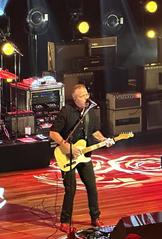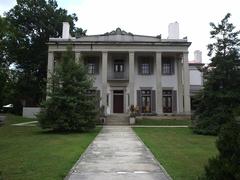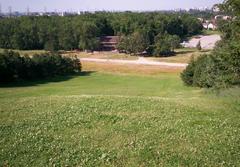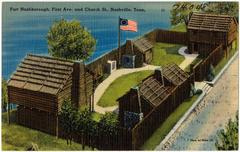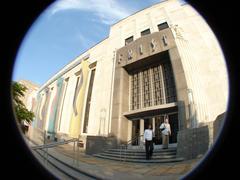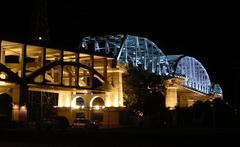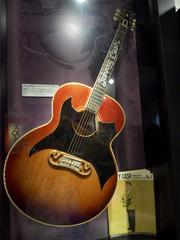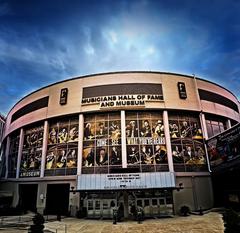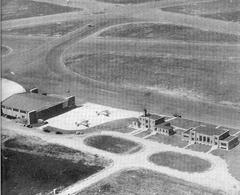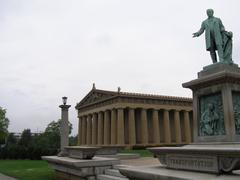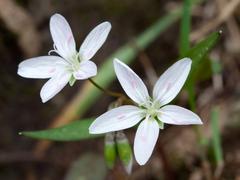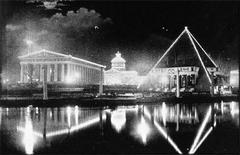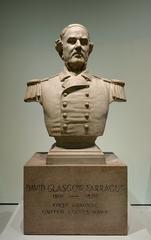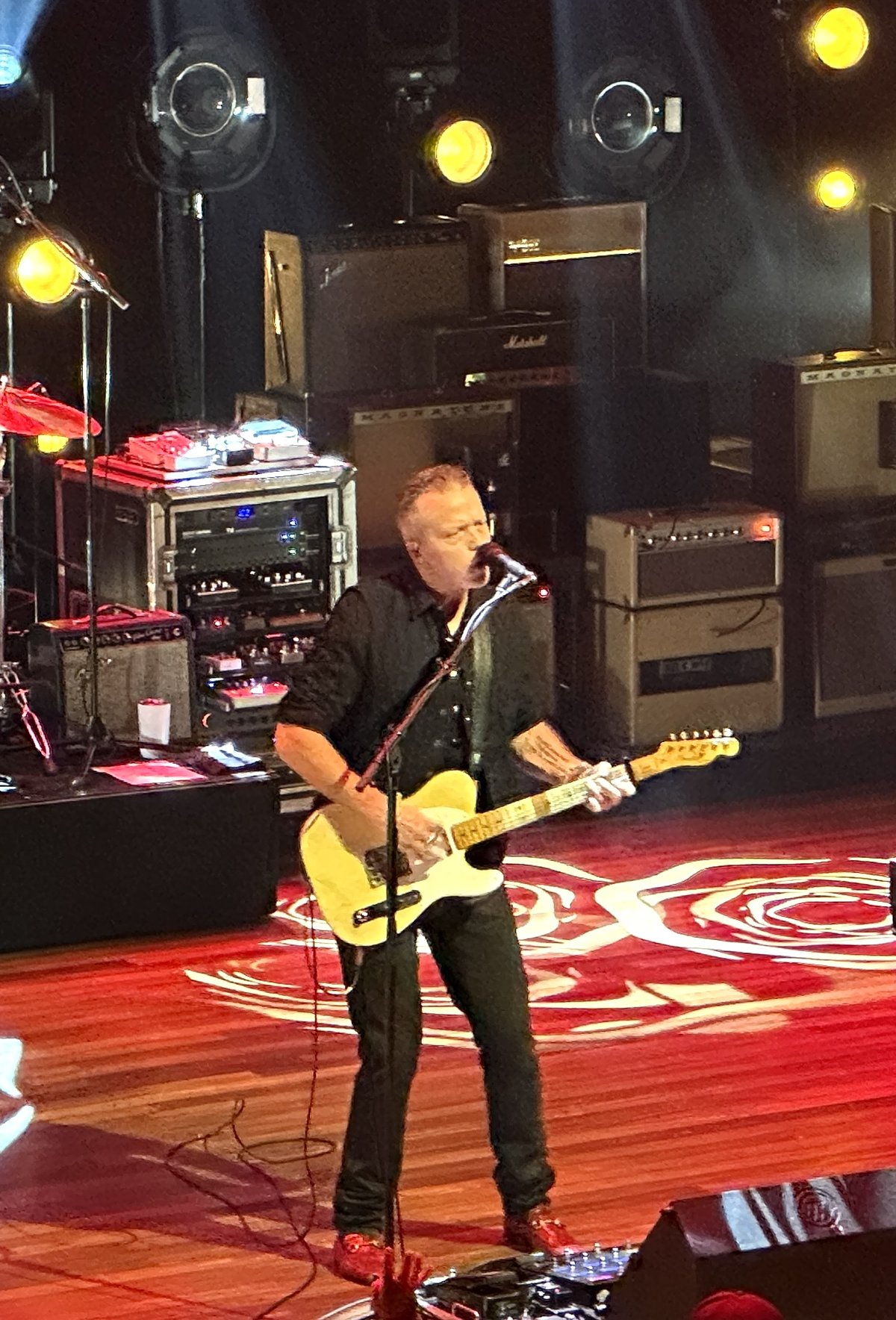
Visiting the Ryman Auditorium: History, Tickets, and Tips
Date: 17/07/2024
Why Visit the Ryman Auditorium
The Ryman Auditorium, often hailed as the ‘Mother Church of Country Music,’ is a cornerstone of American musical history and one of Nashville’s most iconic landmarks. Originally built in 1892 as the Union Gospel Tabernacle by riverboat captain Thomas G. Ryman, the venue has undergone a fascinating transformation from a religious gathering space to a world-renowned music hall. The Ryman’s unique blend of Late Victorian Gothic and Romanesque Revival architecture, coupled with its unparalleled acoustics, has made it a beloved venue for a wide array of performances. This guide aims to provide a comprehensive overview of the Ryman Auditorium, including its illustrious history, architectural significance, visitor information, and cultural impact. From its early days hosting evangelical revivals to its pivotal role in the birth of bluegrass and its enduring legacy through the Grand Ole Opry, the Ryman Auditorium continues to be a beacon of musical heritage and cultural preservation. (Ryman Auditorium Official Website)
Table of Contents
- [Discover the Ryman Auditorium](#discover-the-ryman-auditoriumdiscover-the-ryman-auditorium)
- [A History Steeped in Gospel, Country, and Bluegrass](#a-history-steeped-in-gospel-country-and-bluegrassa-history-steeped-in-gospel-country-and-bluegrass)
- [From Tabernacle to Auditorium - A Transformation Unfolds](#from-tabernacle-to-auditorium---a-transformation-unfoldsfrom-tabernacle-to-auditorium---a-transformation-unfolds)
- [The Birthplace of Bluegrass - A Legacy Takes Shape](#the-birthplace-of-bluegrass---a-legacy-takes-shapethe-birthplace-of-bluegrass---a-legacy-takes-shape)
- [Architectural Significance - A Blend of Styles and Acoustic Majesty](#architectural-significance---a-blend-of-styles-and-acoustic-majestyarchitectural-significance---a-blend-of-styles-and-acoustic-majesty)
- [A History Steeped in Gospel, Country, and Bluegrass](#a-history-steeped-in-gospel-country-and-bluegrassa-history-steeped-in-gospel-country-and-bluegrass)
- [Visitor Information](#visitor-informationvisitor-information)
- [Ryman Auditorium Visiting Hours and Ticket Prices](#ryman-auditorium-visiting-hours-and-ticket-pricesryman-auditorium-visiting-hours-and-ticket-prices)
- [Travel Tips](#travel-tipstravel-tips)
- [Nearby Attractions](#nearby-attractionsnearby-attractions)
- [Special Events and Tours](#special-events-and-toursspecial-events-and-tours)
- [A National Treasure - Preservation and Continued Legacy](#a-national-treasure---preservation-and-continued-legacya-national-treasure---preservation-and-continued-legacy)
- [FAQ Section](#faq-sectionfaq-section)
- [Musical Significance and Present-Day Use](#musical-significance-and-present-day-usemusical-significance-and-present-day-use)
- [Musical Significance of the Ryman Auditorium](#musical-significance-of-the-ryman-auditoriummusical-significance-of-the-ryman-auditorium)
- [Birthplace of Bluegrass](#birthplace-of-bluegrassbirthplace-of-bluegrass)
- [The Grand Ole Opry’s Enduring Home](#the-grand-ole-oprys-enduring-homethe-grand-ole-oprys-enduring-home)
- [A Legacy Preserved - Music at the Ryman Today](#a-legacy-preserved---music-at-the-ryman-todaya-legacy-preserved---music-at-the-ryman-today)
- [Tours and Exhibits](#tours-and-exhibitstours-and-exhibits)
- [Attending a Show](#attending-a-showattending-a-show)
- [Practical Tips for Your Visit](#practical-tips-for-your-visitpractical-tips-for-your-visit)
- [Musical Significance of the Ryman Auditorium](#musical-significance-of-the-ryman-auditoriummusical-significance-of-the-ryman-auditorium)
- [The Show Goes On - Performances and Events](#the-show-goes-on---performances-and-eventsthe-show-goes-on---performances-and-events)
- [Conclusion](#conclusionconclusion)
- [Further Reading and References](#further-reading-and-referencesfurther-reading-and-references)
Discover the Ryman Auditorium
The Ryman Auditorium, known as the ‘Mother Church of Country Music,’ offers a rich tapestry of history, architectural splendor, and live performances. This guide will explore its history, architectural significance, visitor information, and much more.
A History Steeped in Gospel, Country, and Bluegrass
The Ryman Auditorium boasts a rich history that intertwines with the very soul of American music. Its story began in 1890 when riverboat captain and Nashville businessman Thomas G. Ryman, a known saloon owner, envisioned a grand tabernacle for religious gatherings.
From Tabernacle to Auditorium - A Transformation Unfolds
Ryman, deeply moved by the preaching of evangelist Samuel Porter Jones, vowed to build a permanent space for Jones’ revivals. Thus, the ‘Union Gospel Tabernacle,’ designed by architect Hugh Cathcart Thompson, was born. Completed in 1892, the building featured distinctive stained-glass windows and open-air seating, reflecting a blend of Late Victorian Gothic and Romanesque Revival architectural styles.
After Ryman’s death in 1904, the tabernacle, burdened by debt, was leased to new management. Recognizing its acoustic potential and seating capacity, they began hosting a variety of events, from political rallies and operas to boxing matches and even the occasional religious gathering.
The Birthplace of Bluegrass - A Legacy Takes Shape
In 1943, the National Life and Accident Insurance Company, which had acquired the building, made a pivotal decision. They moved their popular radio show, the ‘Grand Ole Opry,’ to the Ryman Auditorium. This marked a turning point in the building’s history and in the trajectory of country music.
The Ryman’s exceptional acoustics, characterized by its wooden pews and curved balcony, amplified the raw energy of bluegrass and country music. Legends like Hank Williams, Johnny Cash, Patsy Cline, and Bill Monroe graced its stage, solidifying the Ryman’s reputation as the ‘Mother Church of Country Music.‘
Architectural Significance - A Blend of Styles and Acoustic Majesty
The Ryman Auditorium’s architectural style is a unique blend of Late Victorian Gothic and Romanesque Revival elements. The exterior, with its pointed arches, stained-glass windows, and asymmetrical facade, reflects the Gothic influence. Inside, the exposed brick walls, wooden beams, and curved balcony showcase the Romanesque Revival style.
However, the true magic of the Ryman lies in its unparalleled acoustics. The wooden pews, the curved balcony, and the lack of modern soundproofing create a warm, resonant sound that envelops the audience. This natural amplification contributed significantly to the development of bluegrass and country music, giving these genres their signature sound.
Visitor Information
Ryman Auditorium Visiting Hours and Ticket Prices
The Ryman Auditorium is open for tours daily from 9:00 AM to 4:00 PM. Ticket prices for self-guided tours start at $24.95 for adults, with discounted rates for children and seniors. Guided backstage tours are also available for an additional fee.
Travel Tips
The Ryman Auditorium is located at 116 5th Ave N, Nashville, TN 37219. It is recommended to book tickets in advance, especially during peak tourist seasons. Parking is available nearby, and the venue is also accessible via public transportation.
Nearby Attractions
While visiting the Ryman Auditorium, consider exploring nearby attractions such as the Country Music Hall of Fame, the Johnny Cash Museum, and the historic Honky Tonk Highway. These sites offer a deeper dive into Nashville’s rich musical heritage.
Special Events and Tours
The Ryman Auditorium hosts a variety of special events, from live concerts to theatrical performances. Guided tours provide behind-the-scenes access to this historic venue, offering insights into its storied past and unparalleled acoustics. Don’t forget to bring your camera; the Ryman’s stunning architecture and vibrant atmosphere make it a perfect spot for photographs.
A National Treasure - Preservation and Continued Legacy
Despite its historical significance, the Ryman Auditorium faced demolition threats in the latter half of the 20th century. Thankfully, preservation efforts gained momentum, culminating in the building’s designation as a National Historic Landmark in 1966.
Today, the Ryman Auditorium stands as a testament to the power of music and the enduring legacy of American musical heritage. It continues to host a variety of musical performances, attracting visitors from around the globe who come to experience its history, its acoustics, and the magic that unfolds on its hallowed stage.
FAQ Section
What are the Ryman Auditorium visiting hours?
The Ryman Auditorium is open daily from 9:00 AM to 4:00 PM for tours.
How much are tickets to the Ryman Auditorium?
Ticket prices start at $24.95 for adults, with discounts for children and seniors. Guided backstage tours are available for an additional fee.
Is the Ryman Auditorium accessible?
Yes, the Ryman Auditorium is accessible to visitors with disabilities. It offers wheelchair access and other accommodations.
What are some nearby attractions?
Nearby attractions include the Country Music Hall of Fame, Johnny Cash Museum, and Honky Tonk Highway.
Musical Significance and Present-Day Use
Musical Significance of the Ryman Auditorium
The Ryman Auditorium holds an unparalleled place in American music history. Its journey from a humble tabernacle to a world-renowned music venue is a testament to its enduring legacy.
Birthplace of Bluegrass
While the Ryman’s connection to country music is widely celebrated, its significance extends to other genres. Notably, the auditorium witnessed the birth of bluegrass music when Bill Monroe and his Blue Grass Boys first performed their revolutionary sound on its hallowed stage in 1945. This groundbreaking moment marked a turning point in American music, solidifying the Ryman’s reputation as a breeding ground for musical innovation.
The Grand Ole Opry’s Enduring Home
The Ryman’s story is intricately woven with the history of the Grand Ole Opry, the longest-running radio show in the United States. From 1943 to 1974, the Opry called the Ryman home, broadcasting its unique blend of country music and humor to millions across the nation. This era saw legendary artists like Hank Williams, Johnny Cash, and Patsy Cline grace the Ryman’s stage, etching their names in music history. The spirit of the Opry, with its down-home charm and raw talent, became synonymous with the Ryman, solidifying its status as a sacred space for country music lovers worldwide.
A Legacy Preserved - Music at the Ryman Today
Today, the Ryman Auditorium stands as a vibrant testament to its musical heritage. No longer the permanent home of the Grand Ole Opry, it has been meticulously restored to its former glory and operates as a thriving music venue. The auditorium hosts a diverse range of artists, from contemporary country stars to legendary rock bands, showcasing the breadth of its musical influence.
Tours and Exhibits
Guided tours offer a fascinating glimpse into the Ryman’s past, revealing captivating stories and anecdotes from its illustrious history. Knowledgeable guides lead visitors through the auditorium, sharing insights about its architectural details, legendary performers, and cultural significance. The Ryman also houses a self-guided tour that delves deeper into its history, featuring exhibits of costumes, instruments, and other artifacts from its storied past.
Attending a Show
Experiencing a live performance at the Ryman is an unforgettable experience. The auditorium’s exceptional acoustics and intimate atmosphere create an unparalleled connection between artists and audiences. Tickets for shows can be purchased online or at the box office, and it’s advisable to book in advance, especially for popular acts.
Practical Tips for Your Visit
- Location and Accessibility: The Ryman Auditorium is located in the heart of downtown Nashville, easily accessible by public transportation or car. The venue is wheelchair accessible, with designated seating areas available.
- Photography: Non-flash photography is permitted during tours and select performances. However, it’s always best to check with staff regarding specific event policies.
- Dining and Shopping: The Ryman is surrounded by a vibrant district filled with restaurants, bars, and shops, offering ample opportunities for pre-show dining or souvenir hunting.
- Ryman Auditorium Visiting Hours: The auditorium is generally open for tours from 9 AM to 4 PM daily, but hours may vary based on event schedules. Always check the official website for the most current visiting hours.
Nearby Attractions
While visiting the Ryman, take the opportunity to explore other Nashville historical sites and attractions. Some nearby points of interest include the Country Music Hall of Fame, the Johnny Cash Museum, and the historic Printer’s Alley.
The Show Goes On - Performances and Events
The Ryman Auditorium’s calendar is packed with an eclectic mix of performances, ensuring there’s something for everyone. Visitors can experience the magic of the Grand Ole Opry, which returns to its former home for select shows throughout the year, offering a nostalgic journey back in time.
Beyond country music, the Ryman welcomes a diverse lineup of artists, including renowned musicians from various genres, ensuring a dynamic and engaging experience for all. The auditorium also hosts theatrical productions, comedy shows, and special events, further solidifying its position as a cultural hub in Nashville.
Conclusion
The Ryman Auditorium is more than just a concert hall; it’s a living monument to American music. Its history resonates through its wooden pews, its stage has witnessed countless legendary performances, and its spirit continues to inspire artists and audiences alike. A visit to the Ryman is a pilgrimage for music lovers, offering a chance to connect with the soul of American music in a truly special setting. For the latest updates and to purchase tickets, visit the official Ryman Auditorium website and follow us on social media.
Further Reading and References
- Ryman Auditorium Official Website. (n.d.). Retrieved from https://ryman.com/
- Visiting the Ryman Auditorium - History, Tickets, and Tips. (n.d.). Retrieved from https://ryman.com/
